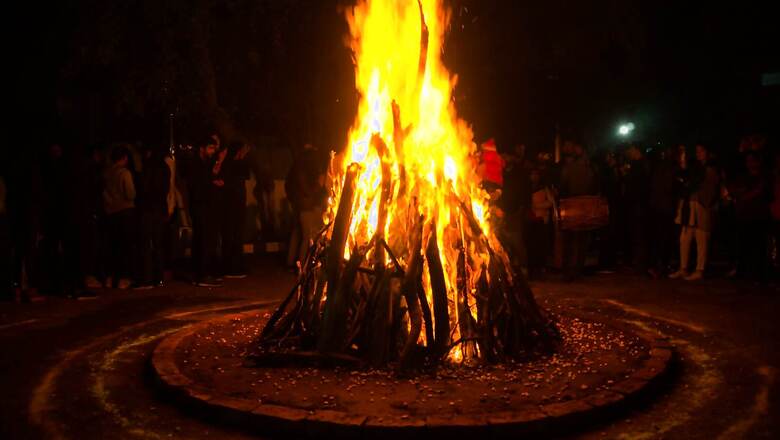
views
Different festivals take place in different countries in the summer season and few are known for their unique way of festivities or weird traditions. Today we are going to share with you the special tradition of celebrating the Midsummer Festival in the European country Lithuania.
In Lithuania, a special festival called Midsummer Festival or St. Jonas’ Festival is celebrated every year on June 24. You must have understood from the name itself that this festival is celebrated in the middle of the summer season. Actually, for years this festival was being celebrated on the occasion of the summer solstice, which falls on June 21 and is the longest day of the year.
On this occasion, the people of Lithuania burn wood like Holika and roam around it. It is believed that the higher the flames of bonfire rise, the better will be the crop and the more prosperity will come into the society. This festival is celebrated to understand the good crop and farming of the year. Some people even jump over the bonfire to improve their health. But, some other practices of this festival are quite strange.
On the day of the festival, the girls wash their faces with morning dew, they have to apply the dew on their cheeks and forehead. Not only this, newly married couples have to go out in the dark to find a special fern plant. This is called magic fern, and it’s believed that those who find it, their married life will be blissful.
Along with this, the girls who wish to get married soon must make a garland of fern and shed it in the river. If two garlands meet, then it is believed that those girls will get married within a year.
Midsummer is the “feast of dew” and this festival signifies rebirth, regeneration, growth, and fertility. On this day people worship the goddess of fertility, Lada, and Perkunas, the god of thunder. People gather together to sing and dance around bonfires. The aim is to please the god to protect the harvest and the people against calamities, bad weather, and evil spirits.
According to reports, people believed that washing the face with dew from the rye plant on this day could rejuvenate the skin. Ancient Lithuanians also used to sprinkle dew on the bed linen of the sick people in the hope they will recover soon and also sprinkle it on vegetable gardens for good crops.
Read all the Latest Buzz News here

















Comments
0 comment